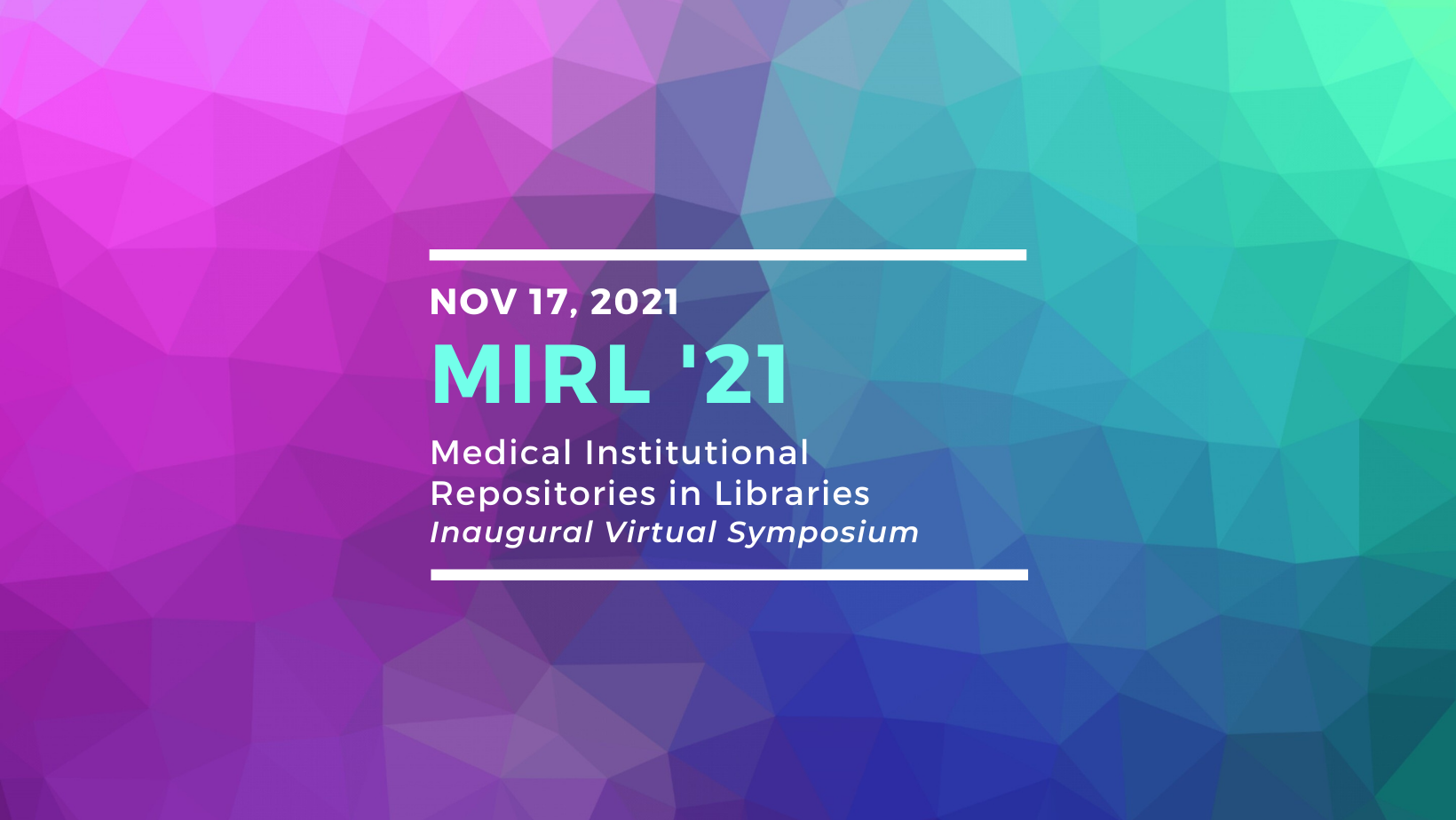Presentation Type
Presentation
Date
2021-11-17
Description
To increase local contributions to medical education scholarship, a medical school began hosting an annual school-wide conference in 2020. Two librarians worked proactively with conference organizers to preserve and provide access to presentation materials and session recordings. This targeted outreach became more effective in the second year as students and faculty were invited on the conference submission form to express interest in contributing materials to the university’s institutional repository. The librarians were able to use this list of interested participants to obtain permissions, additional information, and address potential questions rather than relying on a post-hoc solicitation of conference materials. Workflow tutorials and tracking spreadsheets were developed and used by library staff to upload items and metadata to the campus institutional repository (posters, presentation slides) and a university-wide repository for digital audio and video collections (video recordings). The 2021 conference being virtual meant all presentations were recorded and increased ease of retrieval for upload. Librarians were able to integrate and streamline access to the materials across different systems using unique persistent identifiers. This new approach to documenting local scholarship provides sustainable, online access to conference materials that would otherwise not be available long-term, promotes the research of students and faculty, and increases the visibility of the institution’s digital repositories as a research service. Additionally, leveraging content-specific platforms to provide access to both traditional research products and recordings of the presentations themselves gives asynchronous viewers a more complete, integrated learning experience. Pressure points, limitations, and areas of improvement will be discussed.
Keywords
institutional repositories, health sciences, Medical Institutional Repositories in Libraries, MIRL, MIRL 2021, conferences
Open Access
1
Rights and Permissions
Copyright © 2021 Pieczko and Craven
Repository Citation
Pieczko, Brandon T. and Craven, Hannah J., "Going Beyond the IR: Using Content-Specific Platforms and Targeted Outreach to Provide Integrated Access to a Medical School’s Education Scholarship" (2021). Medical Institutional Repositories in Libraries (MIRL). 9.
https://hsrc.himmelfarb.gwu.edu/mirl/2021/program/9
Going Beyond the IR: Using Content-Specific Platforms and Targeted Outreach to Provide Integrated Access to a Medical School’s Education Scholarship
To increase local contributions to medical education scholarship, a medical school began hosting an annual school-wide conference in 2020. Two librarians worked proactively with conference organizers to preserve and provide access to presentation materials and session recordings. This targeted outreach became more effective in the second year as students and faculty were invited on the conference submission form to express interest in contributing materials to the university’s institutional repository. The librarians were able to use this list of interested participants to obtain permissions, additional information, and address potential questions rather than relying on a post-hoc solicitation of conference materials. Workflow tutorials and tracking spreadsheets were developed and used by library staff to upload items and metadata to the campus institutional repository (posters, presentation slides) and a university-wide repository for digital audio and video collections (video recordings). The 2021 conference being virtual meant all presentations were recorded and increased ease of retrieval for upload. Librarians were able to integrate and streamline access to the materials across different systems using unique persistent identifiers. This new approach to documenting local scholarship provides sustainable, online access to conference materials that would otherwise not be available long-term, promotes the research of students and faculty, and increases the visibility of the institution’s digital repositories as a research service. Additionally, leveraging content-specific platforms to provide access to both traditional research products and recordings of the presentations themselves gives asynchronous viewers a more complete, integrated learning experience. Pressure points, limitations, and areas of improvement will be discussed.


